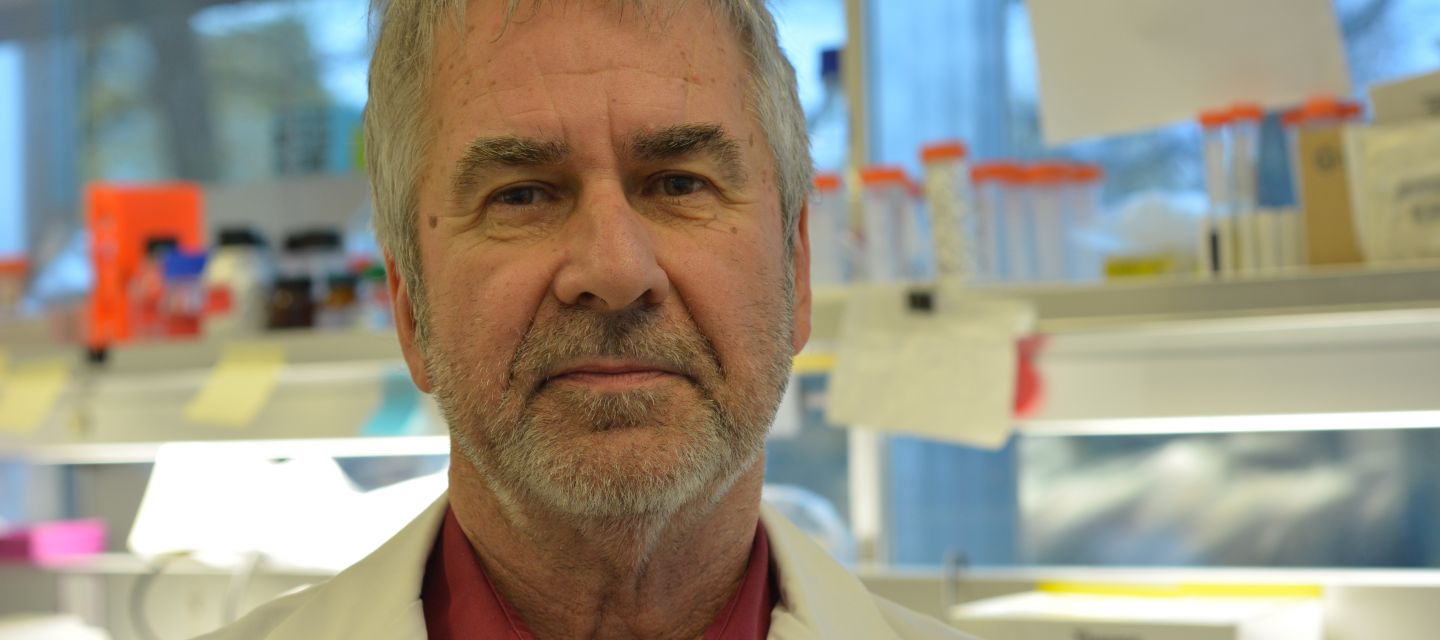A potential treatment for advanced prostate cancer developed by the University of British Columbia (UBC) and Vancouver Coastal Health Research Institute (VCHRI) scientists has been licensed to pharmaceutical company Roche, marking UBC’s largest licensing agreement to date.
Developed at the Vancouver Prostate Centre, the new drug technology that is in pre-clinical development could one day be used to treat prostate cancers that have become resistant to existing treatments. The Vancouver Prostate Centre is a research hub hosted by UBC and VCHRI and designated a national Centre of Excellence for Commercialization and Research.
“We are thrilled that a potential treatment discovered here in B.C. will be developed further and could help many patients dealing with this disease,” said UBC Interim President Martha Piper. “This agreement is an excellent example of the vital role that universities can play in creating and developing new technologies.”
When advanced prostate cancer spreads, it becomes metastatic and virtually incurable. Current treatments initially slow the spread of the disease and help prolong a patient’s life but the cancer eventually mutates and becomes resistant to drugs. The new treatment, developed by a research team led by Paul Rennie and Artem Cherkasov, is designed to outsmart the cancer by targeting a site in the cancer cells that is not prone to mutation.
{"preview_thumbnail":"/sites/default/files/styles/video_embed_wysiwyg_preview/public/video_thumbnails/U1mKTF0WVko.jpg?itok=am3dfo9d","video_url":"https://www.youtube.com/watch?v=U1mKTF0WVko","settings":{"responsive":1,"width":"854","height":"480","autoplay":0},"settings_summary":["Embedded Video (Responsive)."]}
“We’re at a stage now that we need the right pharmaceutical partner to help to move this technology from a discovery into a finished product,” said Rennie, a professor in the department of Urologic Sciences at UBC and director of laboratory research at the Vancouver Prostate Centre.
“Licensing a treatment to a company is a critical step in ensuring that new technologies end up helping people who need them,” said Brad Wheeler, technology transfer manager at the University-Industry Liaison Office and lead negotiator on the Roche license.
The licensing agreement also stipulates that research will continue in collaboration with the scientists at the Vancouver Prostate Centre.
“We’ve brought computers into biology and we can see what’s going on before we test it in the lab,” said Cherkasov, associate professor at the department of Urologic Sciences and a senior research scientist at the Vancouver Prostate Centre.
Under the terms of the agreement with Roche, UBC and VCHRI can expect to receive an upfront payment, and up to $141.7 million US in pre-clinical, clinical and sales milestone payments for the first product to reach the market, and royalties thereafter. The scientists will share 50 per cent of the net revenues.
BACKGROUND
The potential new treatment was developed using a new computer technology that can scan a database of millions of different molecules to find the ones that will work best as possible treatments.
The research was funded in part by Prostate Cancer Canada, Prostate Cancer Foundation (U.S.), Safeway Canada, the CIHR’s Proof of Principle commercialization program, and PC-TRiADD.
